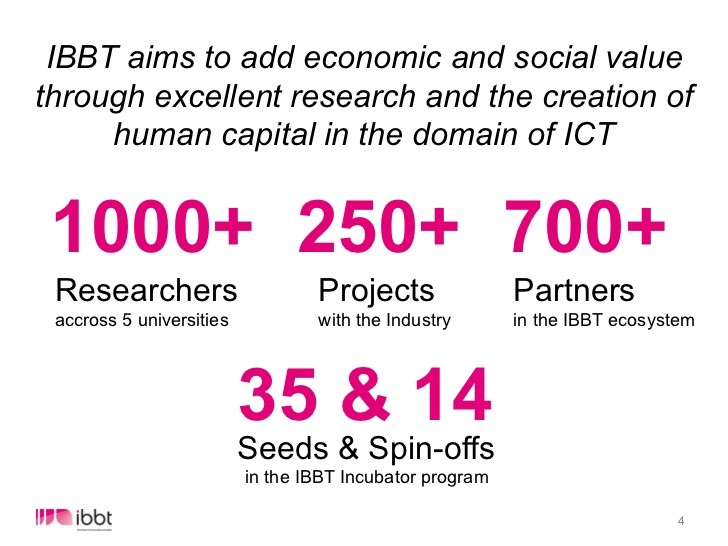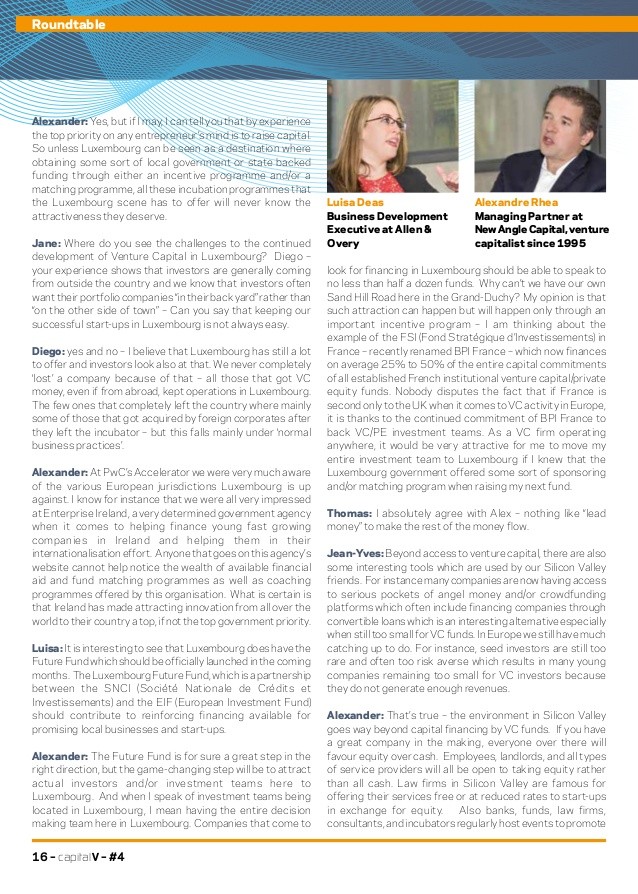Venturing Mind Angel Investors and Venture Capitalists in Turkey
Post on: 16 Март, 2015 No Comment

Monday, September 6, 2010
Angel Investors and Venture Capitalists in Turkey
As an entrepreneur having gone through angel and venture capital (VC) funding stages for my technology start-ups, I have a special interest in developments of the VC world. I started hearing about increasing amount of investment activities mainly in the information technology (IT) field in my home country Turkey although small and medium enterprises (SME) in developed countries are still suffering from lack of business loans and slower funding activities that started with latest global finance crisis[1].
That stirred up some curiosity in me! I wondered how much of these investments were backed by VCs and angels. Traditional fund sources such as family, friends and bank loans have dominated in Turkish funding world while the U.S started venture funded firms in early 1950s and England in the 80s[2]. I wondered how about in Turkey? Do we have well-established VCs and angels? Who are they and based on which criteria do they invest? Which fields and what kind of companies do they invest in? What is their investment range and in which business cycle do they hop on board with a stash of money?!
That is why I conducted some research to write this article. I want to first clear out what I consider as a VC or an angel. Not all investors that invest in some kind of enterprise are a VC or an angel. So lets start with some basic definitions and then I will jump to introductions of respectable Turkish angels and VCs.
BASIC DEFINITIONS:
VC is a general term used to describe a form of investor characterized by long-term, equity-based investment, frequently involving start-up and high-growth firms. The capital is typically used in the development of advanced technology products and services in fields such as information technology (IT), bio-technology, telecommunications and renewable energy. VCs are held to be hands-on investors, actively intervening in company management, and seek capital gain rather than income stream.
Well, for modern start-ups the problem with VCs is they are too big! VCs typically establish a pool of funds secured from various investors, have well-paid experts to manage the pool and make measured-risk, high-reward investments. Therefore, their diligence process is lengthy and once an entrepreneur is good enough to secure funds from them, they want to put in typically over $3M USD (a figure valid for the U.S. market)[3]. Please see the chart below for average VC investments made in the U.S. between 1995 and 2008.
As a result, a VC usually requires a serious commitment from the entrepreneur to pursue an idea that is highly experimental. If the product does not stick, it might make sense for the entrepreneur to pursue a totally different idea or drop the business altogether. This is much easier to do if you have raised $100,000 rather than $1,000,000. Therefore, entrepreneurs need someone to bridge the gap between building the initial product and building the company. This is where angel investors step in.
Angel investors are typically well-connected, wealthy individuals. They generally use their own money and do not come with the VC constraints described above. They usually understand the experimental nature of the idea and a seed-business. The following chart shows where business angels fall in the financing chain of an innovative company.
en.franceangels.org/Business-Angels/The-financing-cycle
INTRODUCTION TO VCs & ANGELS in TURKEY
Lets start with firms and groups that invest seed funds and then move to the ones that invest in later stage companies:
Inovent is a technology commercialization company. It specializes in development, commercialization and management of intellectual properties developed by universities, research institutions, technology companies and entrepreneurs in Turkey. They perform various services besides fund provision to entrepreneurs from business plan development to incubation services to intellectual property management. Their seed fund focuses on pre-seed, seed, proof of concept and initial commercialization stage deals and will typically make an investment of between 25,000TL and 250,000TL (1 TL is approx. 0.65 USD as of September, 2010)[4]. Inovent CEO Serhat Görgün expressed that they have helped found 16 startups including NanoTeco (nano technology), Maxima (machining operations), Inotek (web-based technologies), Selp (virtual webinar systems) and MetalForm (rapid resistance heating systems)[5].
Young Turk Ventures is an internet-focused investment firm led by Cem Sertoglu. The firm targets to invest between 100,000 and 4 million Euros. Although the company is agnostic in terms of target business cycle for fund-seeking companies, it is currently interested in deals over a million euro. The firm’s investments include GittiGidiyor.com (via Mr. Sertoglu’s involvement at iLab Ventures), YemekSepeti.com (online food delivery) and Grupanya (merchandise deals site)[6].
Teknoloji Yatirim A.S. started investing in 2007. The firm provided funding to companies developing location-based services (Infotech) and a medical device pending FDA approval (Uca Medical)[7]. They target seed-level investment opportunities requiring less than 750,000 USD for companies operating in IT, biotechnology and health services.
Galata Business Angels (GBA) operates as a not-for-profit organization and acts as a platform where member angel investors and aspiring entrepreneurs discuss investment opportunities. GBA members founded companies such as AirTies (manufacturer of routers and gateways), Mynet (web portal), and Markafoni.com (private shopping site)[8]. Membership to this premier investment group is by invitation only and members are expected to put their skins in the investment process at least once a year. Members usually invest in areas such as mobile technologies, Internet, software, and telecommunications where they have personal business expertise.
Lab-x provides full-fledged angel services from start-up incubation to funding provision by their 85-member angel network to innovation consulting services. They have investments in Paramarka.com (interactive marketing site), Kobay (research animal lab) and SMS-Groups (mobile chat provider). Lab-x actively searches successful entrepreneurs via business plan competitions in collaboration with respectable universities (such as Bilkent) and business societies (such as GYIAD)[9].
iLab Ventures invests in Internet-based businesses or traditional businesses that plan to expand by using Internet technologies. For instance, the firm provided funding for in-house development of online businesses selling insurance products (Sigortam.net) and personal retirement plans (BesOnline.net) as well as platform sites matching freelancers with projects (Treda), and chemical raw material buyers with sellers (ChemOrbis). They also became a significant shareholder of several major Internet sites in Turkey such as Kariyer.net (career finder) and GittiGidiyor.com (online bazaar). The firm director Yüksel Dibekoglu specified their target investment amount to be in the range of 0.5 to few million USD[4].
212 Venture Capital is a new and promising firm providing not only capital but also strategic support and guidance to early stage companies. It plans to work very closely with techno parks, universities, incubation centers and angel networks. The founders Numan Numan and Ali Karabey started this firm in 2010 after working in investment divisions of major finance companies such as Morgan Stanley, Goldman Sachs, and Deutsche Bank specializing in private equity and venture capital funding of technology firms. 212 Venture Capital is currently raising funds for Q1 2011[10].
Another VC that should probably be mentioned here is Big Bang Ventures as the firm, despite being located in Belgium, has made investments in Turkish start-ups[4]. Big Bang Ventures is a seed and early-stage venture capital fund for high-growth digital media and software companies. The firm typically invests from 0.5 to 3 million Euros. They invested in a performance based digital marketing company (DigiTouch) via Big Bang Ventures II fund and in a social gaming company (Peak Games) via Hummingbird Ventures fund. Please note that the firm has changed its name from Big Bang Ventures to Hummingbird Ventures, which is also the name of their third fund. The companies they invest are located in various European countries such as Pins (hosting services company in Netherlands), Shutl (on-demand immediate delivery network firm in England) and Clear2Pay (payment processing technology developer in Belgium)[11]. According to the firm director Frank Maene, Hummingbird Ventures has allocated a big chunk of its 50 million Euro fund to Turkey and is planning to announce their biggest to date investment in Turkey by the end of January, 2011.
KOBI Girisim is another investment organization that can be considered as a venture capitalist targeting established companies with high growth potential. They seem to differ from other VCs in Turkey due to high concentration of chamber of commerce rather than private company and group involvement in contributing for the organization’s funds. So far KOBI Girisim has invested in companies operating mostly in manufacturing of machinery such as Makim, Intermak and BuTech, although they also intend to invest in telecommunications, biomedicine and information technology companies with high chances of dominating their future markets as a sole player. Their investment range is from 0.5 to 5 million USD[12].
Is Girisim Sermayesi, subsidiary of a major Turkish bank (Is Bankasi), has helped many high-growth companies in various sectors (tech or non-tech) since 2000. Their investments so far have been in the range of 1 to 12 million dollars per deal. Therefore, they consider mostly already established businesses operating with significant competitive advantages in their markets. Their company portfolio includes Havas (airport ground services), TurkMed Diyaliz (dialysis centers), and Probil (system integrator)[13].
Rhea Venture Capital Investment Trust (Rhea Girisim) is an Istanbul Stock Exchange registered public company, regulated by the Turkish Capital Markets Board (SPK). Its management team has some high-profile personnel of the government such as a former president of the Central Bank of Turkey, a former president of Istanbul Stock Exchange and a former senator. Rhea VCIT generally invests in companies of $2 20 million annual sales that have already completed their product and service developments, established a customer base, and have global aspirations. They do not invest in business models targeting Turkish markets only. They have control over invested company’s finances and the board of directors (per their shareholding ratio). The primary sectors Rhea CIT invests are healthcare (medical devices, insurance and payment systems), information technology, software, hardware, Internet, energy/clean technology infrastructure, and business services (finance, hospitality and education). In 2010, Marmara Ferryboats (logistics), Envitec (waste disposal), Seta Medical (healthcare) and Netsafe (information security) were able to receive funding from Rhea VCIT in return for sharing 33% to 99% of their company’s ownerships[14].
Esas Holding is a venture capital company owned and directed mainly by members of Sabanci family, which is one of the most well-known families in Turkish business world. The company has invested in 13 companies in 5 main sectors. Although they started their investment life with early-stage companies, over years their target shifted more to partnerships with and acquisition of large companies such as Pegasus Air, Trakya Farmers and AirBerlin. Therefore, frankly the company should not be the first resort for high-growth small businesses to secure funding[15].
FIBA Kapital Holding, Sedes Holding, Turkven Private Equity, Brightwell Holdings (Alphan Manas Private Investment Firm) and maybe few others that did not get picked up by my radar invest in later-stage companies and will be researched adequately and explained in another article.
Last but not the least, checking recently founded platforms like eTohum might help find those hidden investing and investment gems!
Special thanks to Ersan Cinan (@Intel Corporation), Volkan Gerdan (@VGG Verimlilik) and Ali Karabey (@212 Venture Capital) for sharing their knowledge with me on the matter.
Umit Dogan Demir

REFERENCES:
www.businessweek.com/globalbiz/blog/europeinsight/archives/2010/03/turkey_the_new.html
[2] The first venture capitalist: Financing development in Britain after 1945, the case of ICFC/3i, Richard Coopey, London School of Economics
[3] How angel investing is different than venture investing, Ben Horowitz, BusinessInsider.com, 03/02/2010
www.inovent.com.tr/content/seedfund
www.webrazzi.com/2010/06/16/canli-webrazzi-gundem-risk-sermayesi-ve-melek-yatirim/
www.youngturkvc.com/investments.html
www.teknolojiyatirim.com.tr/teknolojiyatirim.asp?pg=9
www.galatabusinessangels.org/en_US/page/aboutus
lab-x.org/en/basari.html
212vc.com/start/
www.bbv.be/en/portfolio.html
www.kobias.com.tr/eng/
www.isgirisim.com.tr/EN/invest_by_date.asp
www.rheagirisim.com/en/portfolio/














